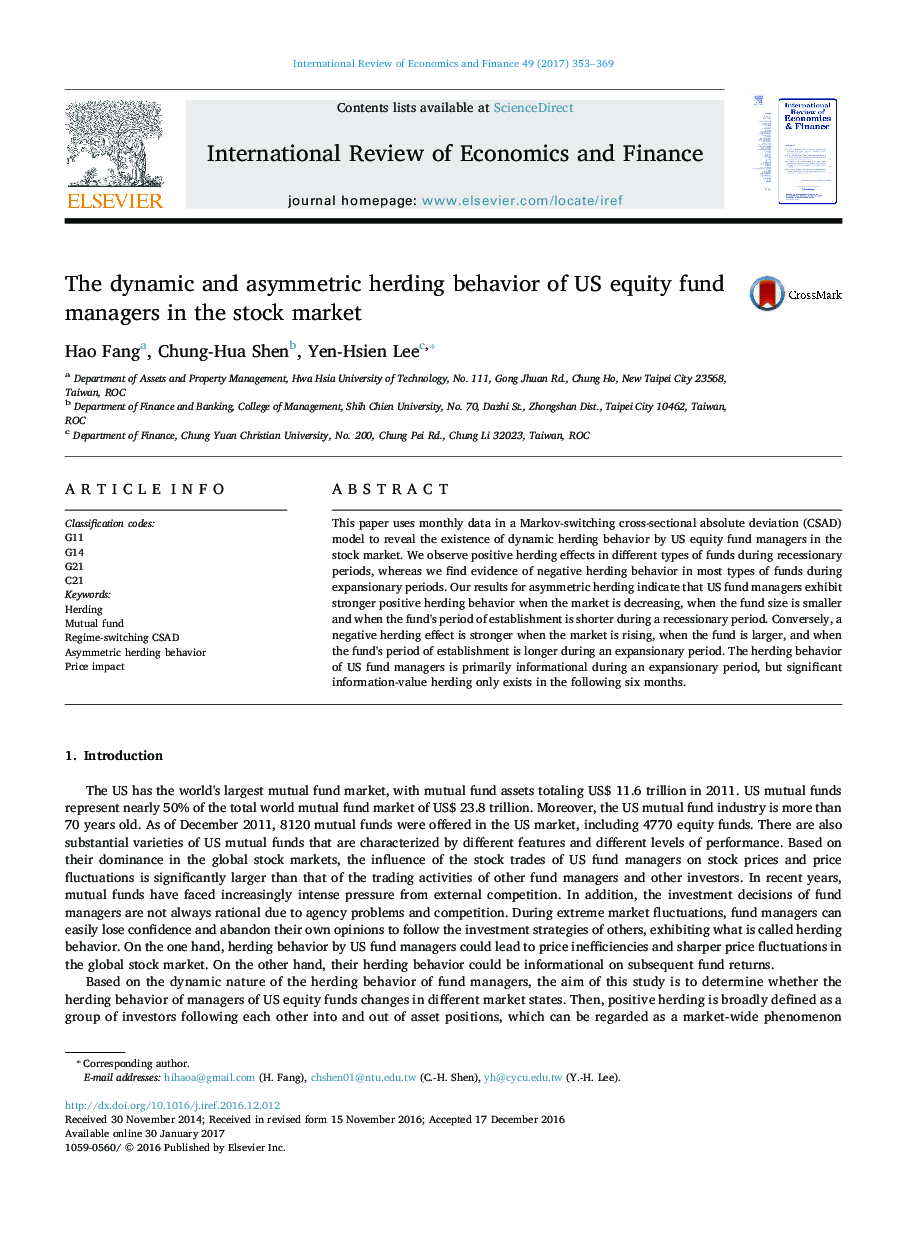| Article ID | Journal | Published Year | Pages | File Type |
|---|---|---|---|---|
| 5083096 | International Review of Economics & Finance | 2017 | 17 Pages |
This paper uses monthly data in a Markov-switching cross-sectional absolute deviation (CSAD) model to reveal the existence of dynamic herding behavior by US equity fund managers in the stock market. We observe positive herding effects in different types of funds during recessionary periods, whereas we find evidence of negative herding behavior in most types of funds during expansionary periods. Our results for asymmetric herding indicate that US fund managers exhibit stronger positive herding behavior when the market is decreasing, when the fund size is smaller and when the fund's period of establishment is shorter during a recessionary period. Conversely, a negative herding effect is stronger when the market is rising, when the fund is larger, and when the fund's period of establishment is longer during an expansionary period. The herding behavior of US fund managers is primarily informational during an expansionary period, but significant information-value herding only exists in the following six months.
